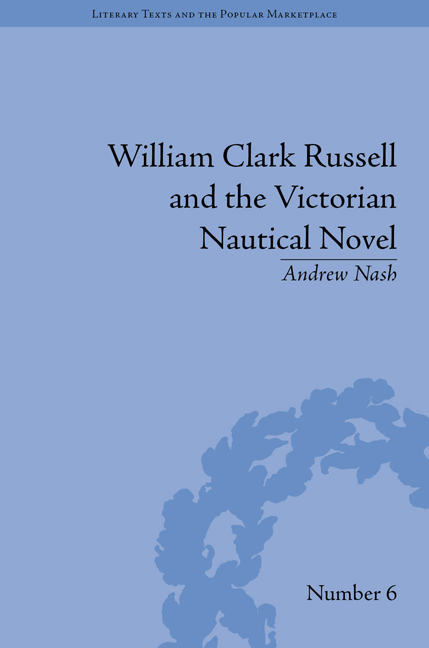Book contents
- Frontmatter
- CONTENTS
- Preface and Acknowledgements
- List of Figures and Tables
- Introduction
- 1 Sailor and Writer
- 2 Writing as a Woman
- 3 Finding the Sea
- 4 Writing the Sea: Genre and Theme
- 5 Writing the Sea: Women and Gender
- 6 Marketing the Sea: Serials
- 7 Marketing the Sea: Books and Publishers
- William Clark Russell: A Bibliography
- Notes
- Works Cited
- Index
6 - Marketing the Sea: Serials
- Frontmatter
- CONTENTS
- Preface and Acknowledgements
- List of Figures and Tables
- Introduction
- 1 Sailor and Writer
- 2 Writing as a Woman
- 3 Finding the Sea
- 4 Writing the Sea: Genre and Theme
- 5 Writing the Sea: Women and Gender
- 6 Marketing the Sea: Serials
- 7 Marketing the Sea: Books and Publishers
- William Clark Russell: A Bibliography
- Notes
- Works Cited
- Index
Summary
Russell's sea stories appeared at a critical moment in the development of genre fiction. A recent Companion to Popular Fiction identifies the late nineteenth century as the period when ‘the genres that constitute so much of popular fiction emerge’. The decline of the three-volume novel and the expansion of the periodical press contributed to a more varied market with different publishing outlets demanding different types of writing, facilitating the ‘inception of the modern system of genre fiction’. The evolution of detective fiction, for example, can be traced to the publication of Conan Doyle's Sherlock Holmes stories in the Strand, while the origins of other recognizable genres, such as science fiction, can also be found in this period. Unlike these popular genres, the sea story did not develop in the subsequent century as a discrete category published and marketed in a way that was distinct from other forms of literature. Nautical adventures could be found between the covers of the story magazines that flourished in Britain and America in the early twentieth century, but the genre did not develop into a separate market sector like, for example, Westerns or women's romance. In this context, it is significant that Russell's development of the nautical genre in the late nineteenth century took place largely within the established structures of the marketplace.
- Type
- Chapter
- Information
- William Clark Russell and the Victorian Nautical NovelGender, Genre and the Marketplace, pp. 131 - 152Publisher: Pickering & ChattoFirst published in: 2014



